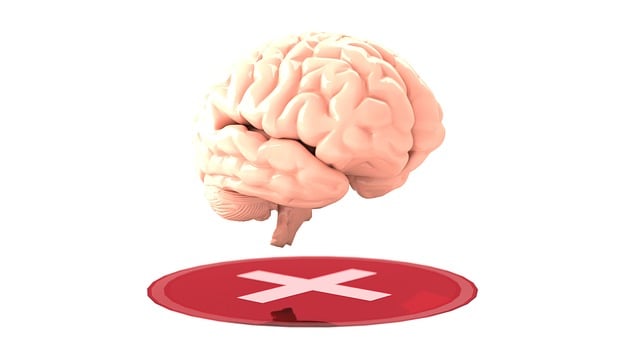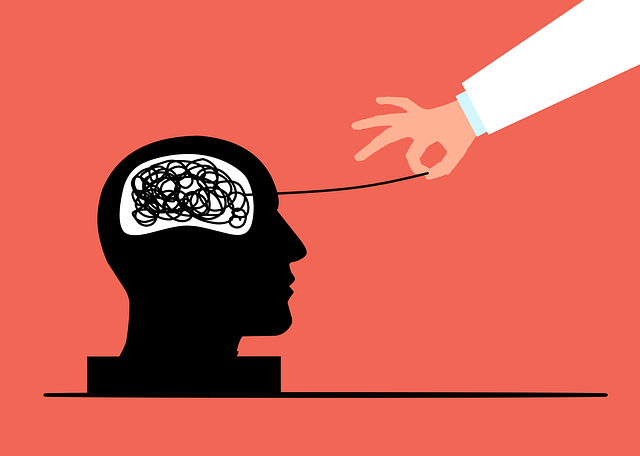Mental wellness is a holistic concept influenced by emotional, psychological, and social factors, impacting all areas of life. Broomfield Functional Neurological Disorder (BFNT) Therapy takes a comprehensive approach to address mental health issues by focusing on brain function, physical health, and emotional well-being. Unlike traditional symptom-focused treatments, BFNT targets underlying causes, offering evidence-based strategies like social skills training and risk management planning. Combining self-care practices with professional support, this therapy empowers individuals to manage stress, overcome challenges, and achieve vibrant mental wellness through personalized coaching and normalized conversations about mental health.
Mental wellness is a cornerstone of overall health, influencing how we think, feel, and act. In this article, we explore various aspects of promoting mental wellness, from understanding its profound impact to adopting daily strategies for a healthier mind. We delve into the innovative Broomfield Functional Neurological Disorder Therapy, offering a holistic approach to managing mental health. Additionally, we discuss breaking down stigma through open conversations, emphasizing the importance of community support and education in fostering resilient mental wellbeing.
- Understanding Mental Wellness and Its Impact
- Broomfield Functional Neurological Disorder Therapy: A Holistic Approach
- Strategies for Promoting Daily Mental Wellbeing
- Overcoming Stigma: Encouraging Open Conversations About Mental Health
Understanding Mental Wellness and Its Impact

Mental wellness refers to our emotional, psychological, and social well-being. It impacts every aspect of our lives, from how we think and feel to how we behave and interact with others. Understanding mental wellness is crucial because it affects our overall health and quality of life. According to Broomfield Functional Neurological Disorder Therapy, many common mental health issues arise from underlying neurological imbalances that can be addressed through targeted interventions.
The impact of poor mental wellness is profound. It can lead to burnout prevention challenges, making it difficult for individuals to manage their daily responsibilities and maintain relationships. Empathy building strategies, often overlooked but powerful tools, can play a significant role in fostering supportive environments that promote mental wellness. Additionally, healthcare provider cultural competency training is essential to ensure inclusive care that respects diverse communities’ unique mental health needs.
Broomfield Functional Neurological Disorder Therapy: A Holistic Approach

Broomfield Functional Neurological Disorder (BFNT) Therapy takes a holistic approach to mental wellness, recognizing that each individual is unique. This method delves into the interconnectedness of physical health, emotional well-being, and cognitive function. BFNT aims to uncover and address underlying causes rather than merely treating symptoms, fostering lasting change. Through a combination of evidence-based techniques including social skills training and depression prevention strategies, mental health professionals can effectively navigate complex cases.
Moreover, risk management planning plays a crucial role in BFNT. By implementing proactive strategies, therapists help clients develop resilience against future challenges. This holistic approach not only improves symptoms but also empowers individuals to take charge of their mental wellness, creating a vibrant and balanced life.
Strategies for Promoting Daily Mental Wellbeing

Promoting daily mental wellbeing involves a combination of self-care practices and professional support. Individuals can start by integrating simple yet effective strategies into their routines, such as mindfulness exercises, regular physical activity, and maintaining a balanced diet. These foundational habits not only boost mood but also enhance overall resilience against stress and anxiety. Broomfield Functional Neurological Disorder Therapy (BFNDT) offers tailored approaches to address specific mental health concerns, focusing on the connection between brain function and emotional well-being.
For more comprehensive support, considering Mental Wellness Coaching Programs Development can be transformative. Coaches provide guidance in setting achievable goals, identifying triggers, and implementing effective coping mechanisms. Moreover, integrating stress management techniques like deep breathing, progressive muscle relaxation, or cognitive-behavioral therapy (CBT) modules can significantly contribute to anxiety relief and improved mental wellness.
Overcoming Stigma: Encouraging Open Conversations About Mental Health

Overcoming the stigma surrounding mental health is a vital step towards promoting overall well-being. Encouraging open conversations normalizes discussions about emotions, struggles, and victories related to mental health. Broomfield Functional Neurological Disorder Therapy (BFNDT) recognizes that breaking down these barriers begins with fostering an environment where individuals feel safe to express their experiences without fear of judgment. By integrating sensitive dialogues into our daily interactions, we can create a culture that embraces self-care and seeks support when needed.
This shift in perspective empowers people to explore various stress management techniques and reduce the impact of stressful situations. BFNDT also emphasizes the importance of developing personalized self-care routines as a powerful tool for maintaining mental health. Through education and supportive communities, individuals can learn effective stress reduction methods, allowing them to navigate life’s challenges with enhanced resilience and improved emotional balance.
Mental wellness is a cornerstone of overall health, and recognizing its importance is crucial. Throughout this article, we’ve explored various aspects of mental wellness promotion, from understanding its impact to implementing holistic therapies like Broomfield Functional Neurological Disorder Therapy. By adopting daily strategies and fostering open conversations, individuals can significantly enhance their mental wellbeing. Remember that overcoming stigma is a vital step towards creating a supportive environment where everyone can prioritize and discuss their mental health openly.













